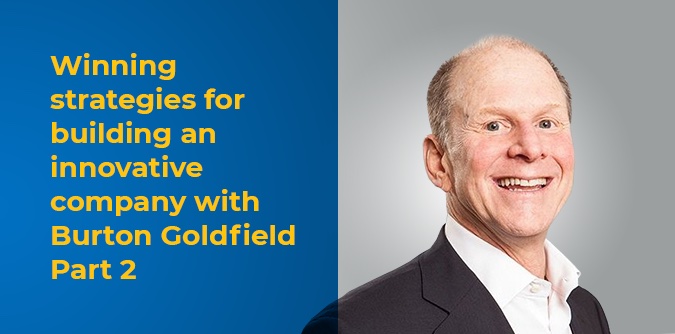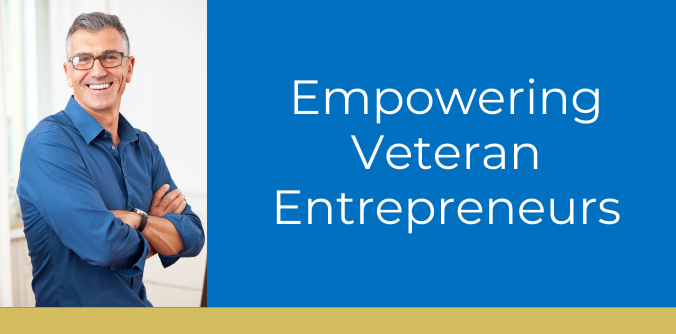Social media blurb:
The CEO of TriNet talks about the importance of sticking to a vision, providing unique solutions, and prioritizing diversity.
Byline:
Kim Folsom
This is Part 2 of a two-part article featuring a conversation with Burton M. Goldfield, CEO of TriNet (NYSE: TNET). Read Part 1 here.
In the second part of my conversation with Burton Goldfield, we covered topics like mentorship, innovation, getting funding, and diversity and inclusion. I hope you enjoy the many pearls of business wisdom he had to offer.
On mentorship and decision making
Mentorship is important. I hardly meet anyone who hasn’t learned something from someone and doesn’t want to pay it forward. But as a CEO, at the end of the day, the buck stops with you.
“First and foremost, I love to get perspectives from a lot of different people,” Burton said. “And I have people that I respect just tremendously. But what I will say to you is that, at the end of the day, the hardest part of being a founder or being a leader is that you have to make the decision.”
“So, formal and informal mentors are really important,” he continued. “I try to help as many people as I can. You’ll always get a straight answer out of me. But at the end of the day, people who are starting and building and leading companies have to take all that input, and then sit down alone and make the decision.”
Leveraging innovation to differentiate your offering
Over the years, customer expectations have changed. Burton said that in the past when customers submitted a question they might expect an answer in a week. Now, if they have a question and put it in the chatbot, you better answer them right away.
So, incoming leads are looking for instantaneous answers on a website and the technology had better provide that. “What we find is a large percentage of our net new customers come in because they searched us out through the web,” Burton said. “They ask questions, or they find answers on the web that compel them to go further. That’s a warm prospect who is reaching out to you.
It’s far better than the old days of direct mail or spam marketing where the emails got in your email box, and most of them got swiped away before you ever looked at them to begin with. So, there is an inflection point for every business, where the buyer is in a position to really learn about what you have to offer, and that occurs in a split second. And frankly, it goes away very quickly.”
But from a go-to-market standpoint, technology is about the immediacy of answers.
When and how to take funding
When it comes to taking funding, Burton said he’s a big Stephen Covey fan and cited “Begin with the End in Mind.”
“If you’re trying to create an app, and you want to make three quarters of a million dollars and sell your app and go live on a desert island, I wouldn’t take any funding,” he said. If you’ve worked night and day and want to keep 100% of your company, hopefully you’ll be successful and meet your vision or your dream. On the other hand, if you’re trying to cure cancer, it’s not a matter of if you’re going to take funding but how many times you’ll take it, whether it’s five times, 10 times, or more.
If you’re going to take funding, the question becomes, who should you take funding from?
Burton sees it as a stepwise function, where at each stage, whether it’s private or public funding, you’re able to sell the next phase of the vision. For him that was always the same: have a meaningful impact on small and medium businesses with a unique product, and work with a great group of people.
“It’s really as simple as surrounding myself with great people, having a big vision, and making sure that everybody believes as much as you do,” he said. “And that means everybody who’s working with your clients, everybody who’s talking to your investors, everybody who is involved in building [your vision].”
Integrating diversity and inclusion for business success
Burton has always been a very vocal advocate for diversity and inclusion strategies being integrated with key corporate strategies, so I asked him how he incorporates them.
“It’s been important to me to try to make a difference in the social fabric of what we are doing and impact not only our clients and make them successful, but the communities around those clients,” he said.
Addressing the employee side of this is simple, he said. “Our clients are diverse, and our employees should look like our clients. So, for me, having a diverse workforce is really important to be able to relate and understand and generate ideas and perspectives similar to our client base.”
The people who are calling your clients, the people who are answering the phone and interacting with your customer base, have to be representative of the people they’re talking to.
It’s also really important if you want to be an enduring company. “An enduring company means that we will be here in 10 years and 20 years and 50 years,” he said. “Why does that matter so much? Because it affects who we hire, how much emphasis we put on the issues around diversity and inclusion, and how much time we spend in training.”
He continued, “To me, I want the culture of the company, frankly, to be better than the world that’s around me. I can’t change a lot of what’s going on in the world, but I can control to some degree what happens inside my own company.”
Diversity and inclusion are a choice that companies make. “If you want to do it in an authentic way, it needs to be part of the soul of the company,” he said. And it needs to be done in service of the customers, and the long-term impact that you will have as an organization.”
Kim Folsom is the founder and CEO of Founders First Capital Partners, which has helped accelerate the success of hundreds of small, service-based, business-to-business companies since 2015. Visit our website to learn more.




